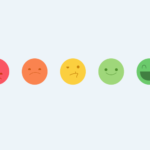Tags BigTech Customer Experience HR Operational Efficiency
While most companies turn to BigTechs for ways to make work easier (e.g. with software and apps), they can also teach all industries other valuable lessons about how to do business. Here are 12 ways non-tech industries can learn from BigTech:
- Embrace failure – non-tech industries should learn to embrace failure and keep trying new things. Some will work out and result in pushing industries forward.
- Focus on consumer experiences – people no longer buy just products and services; they buy experiences. On average, consumers are prepared to pay 4.5 times more for a good experience.
- Consider the human factor – solutions cannot be completely solved by technology itself. Human elements are crucial, especially in areas where tech can’t yet solve a problem.
- Treat employees well – employee enthusiasm is vital for increasing retention. Making life easier (e.g. offering catered meals, providing childcare) results in happier, more productive and loyal employees.
- Be responsive and agile – being able to change and adapt to new market realities is fundamental in today’s fast-paced, constantly-changing environment.
- Streamline processes – leaner teams that are agile and streamlined help reduce timelines, improve consumer feedback and allow employees to innovate.
- Correct mistakes quickly – consumer trust is important and vanish quickly. Being able to admit and rectify mistakes is the best policy for any business.
- Develop more than an idea – companies need to develop something unique and different that goes above and beyond, otherwise they are likely already behind.
- Don’t focus on project management – project management offices, by and large, don’t exist at BigTechs. Instead, they treat product development as a predictable manufacturing line, with everyone involved from start to finish.
- Put consumers first – BigTechs are laser-focused on satisfying customer needs. They tend to outsource things that take away from that focus.
- Fail quickly – BigTechs have learned to make decisions quickly and, perhaps more importantly, to unmake decisions quickly.
- Work smarter – stop wasting time on tedious manual processes and find a way to automate them. It’s not just about working faster; it’s about working smarter.
 BFC Bulletins Monthly News Digest
BFC Bulletins Monthly News Digest



